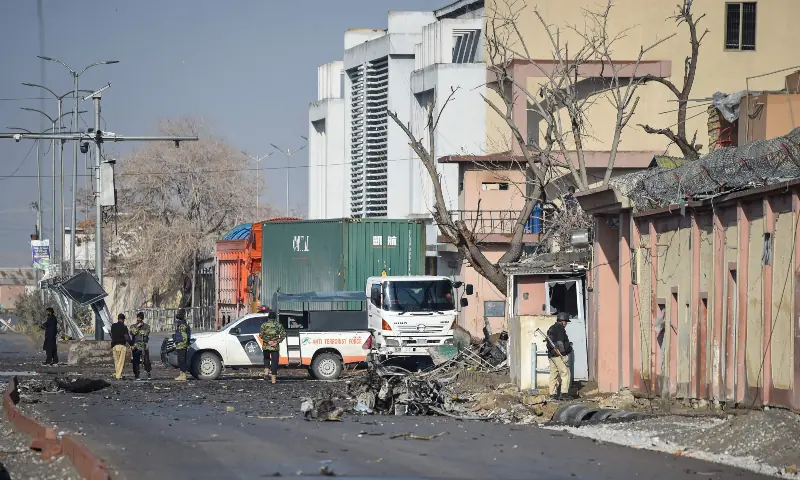China is closely following the evolving situation of the tensions between Pakistan and India following the terrorist attack in the Kashmir region, supporting the prompt initiation of an impartial investigation, hoping both sides will exercise restraint, move toward each other, and work to de-escalate tensions, Wang Yi, a member of the Political Bureau of the Communist Party of China Central Committee and Chinese foreign minister, said during a phone call with Pakistani Deputy Prime Minister and Foreign Minister Mohammad Ishaq Dar on Sunday.
Also See: 200 Chinese Firms Join Pakistan’s Health and Minerals Expo
Wang had the phone call on Sunday local time with Dar upon request.
During the call, Dar briefed on the latest developments regarding tensions between Pakistan and India following the terrorist attack in the Kashmir region, stating that Pakistan has always been resolute in combating terrorism and opposes actions that could escalate tensions.
Pakistan remains committed to managing the situation through a mature approach and will maintain communication with China and the international community, he said.
For his part, Wang stated that China is closely following the evolving situation.
Combating terrorism constitutes a shared responsibility of all nations, and China consistently supports Pakistan’s firm counter-terrorism actions, said Wang.
As an ironclad friend and all-weather strategic cooperative partner, China fully understands Pakistan’s legitimate security concerns and supports its efforts to uphold its sovereignty and security interests, he said.
China supports the prompt initiation of an impartial investigation, emphasizing that conflict serves neither the fundamental interests of India and Pakistan nor regional peace and stability, Wang said, noting that Beijing hopes both sides will exercise restraint, move toward each other, and work to de-escalate tensions.
Gunmen killed at least 26 people and injured a dozen others in Jammu and Kashmir on Tuesday, and most of the 26 people killed were understood to be travelers, CNN said.
Earlier, India ordered the immediate departure of some staff members at Pakistan’s diplomatic mission as well as of Pakistani citizens visiting India, the New York Times reported on Sunday.
Pakistan, for its part, has said it will suspend participation in bilateral treaties, including one that affects the “line of control” demarcating the frontier between the two countries in the disputed areas where a cease-fire had held for several years, said the report.
This news is sourced from Global Times and is intended for informational purposes only.

![China urges restraint, impartial investigation, and de-escalation in Pakistan-India tensions after Kashmir attack. [Image via fmprc]](https://southasiatimes.org/wp-content/uploads/2025/04/64b9d40a-3520-4d6e-982e-c85e13baf8e5.webp)




